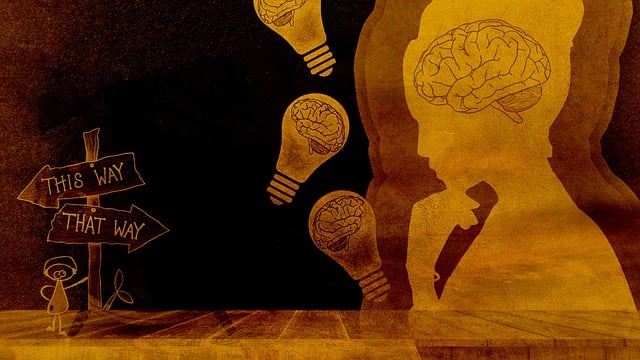Castle Rock Couples Counseling Therapy (CRCT) is an evidence-based approach to improving relationships and emotional well-being for couples through open communication, conflict resolution, and connection enhancement. Its effectiveness is evaluated using multifaceted methods including pre-post measurements, standardized tools, and interviews, tracking improvements in anxiety relief, empathy, and positive thinking. Qualitative evaluations gain deep insights into client experiences, fostering tailored interventions. Quantitative data analysis tracks program success over time by measuring participant demographics, attendance, and psychological assessments. CRCT continuously improves services through evaluation findings, refining programs to better serve the community's mental wellness needs.
Mental wellness programs are vital for fostering healthy communities. This article explores evaluation methods for such initiatives, focusing on the unique approach of Castle Rock Couples Counseling Therapy (CRCT). We delve into diverse assessment techniques, from qualitative client perspectives to quantitative data analysis, offering insights into CRCT’s effectiveness. By examining these strategies, we uncover how continuous improvement can enhance mental wellness programs, ensuring they meet the evolving needs of participants.
- Understanding Castle Rock Couples Counseling Therapy (CRCT) and Its Role in Mental Wellness Programs
- Assessment Techniques for Measuring Program Effectiveness
- Qualitative Evaluation Methods: Uncovering Client Perspectives
- Quantitative Data Analysis: Tracking Progress and Outcomes
- Continuous Improvement: Using Evaluation Findings to Enhance CRCT Programs
Understanding Castle Rock Couples Counseling Therapy (CRCT) and Its Role in Mental Wellness Programs

Castle Rock Couples Counseling Therapy (CRCT) is a specialized form of therapy designed to address interpersonal relationships and emotional well-being within couples. It focuses on fostering open communication, resolving conflicts, and enhancing connection between partners. CRCT incorporates evidence-based practices tailored to individual needs, aiming to strengthen the couple’s bond and promote mental wellness. This therapeutic approach not only helps couples navigate relationship challenges but also facilitates personal growth and inner strength development.
Integrating CRCT into mental wellness programs is valuable for several reasons. It provides a structured framework for understanding interpersonal dynamics and offers tools to manage anxiety relief effectively. Through risk assessment for mental health professionals, they can identify potential issues within the couple’s dynamic and tailor interventions accordingly. This holistic approach ensures that couples receive comprehensive support, contributing to improved mental health outcomes and fostering healthier relationships in the long term.
Assessment Techniques for Measuring Program Effectiveness

Evaluating the effectiveness of a mental wellness program is paramount to understanding its impact and making informed improvements. Castle Rock Couples Counseling Therapy, for instance, employs a multifaceted approach when assessing its interventions. These assessment techniques range from pre-post measurements to gain insights into changes in client symptoms and overall well-being. Standardized questionnaires and interviews are commonly used tools, allowing therapists to quantify progress and identify specific areas of growth or challenge.
One effective method involves tracking improvements in anxiety relief, empathy building strategies, and positive thinking over time. By comparing initial assessments with subsequent evaluations, therapists can gauge the program’s success in fostering these crucial aspects of mental wellness. This data-driven approach not only helps in refining existing practices but also serves as a testament to the program’s overall effectiveness, ultimately enhancing the quality of care provided by Castle Rock Couples Counseling Therapy.
Qualitative Evaluation Methods: Uncovering Client Perspectives

Qualitative Evaluation Methods play a pivotal role in understanding client perspectives within mental wellness programs, such as Castle Rock Couples Counseling Therapy. Techniques like interviews, focus groups, and surveys allow for deep exploration of emotional experiences, perceptions of treatment effectiveness, and barriers to healing. This human-centric approach is particularly valuable in unraveling the intricate emotional healing processes, fostering a sense of trust and openness among clients.
By employing these methods, mental health professionals gain insights into the nuances of client journeys, including their interactions with Crisis Intervention Guidance. Understanding these perspectives empowers therapists to tailor interventions, enhancing the overall effectiveness of services offered, like those provided by Castle Rock Couples Counseling Therapy, ensuring that support is not just practical but also deeply resonant with individual needs.
Quantitative Data Analysis: Tracking Progress and Outcomes

Quantitative data analysis plays a pivotal role in evaluating mental wellness programs, offering a structured approach to track progress and measure outcomes. By collecting and analyzing numerical data, Castle Rock Couples Counseling Therapy can gain valuable insights into the effectiveness of their interventions. This method involves assessing various metrics such as participant demographics, attendance rates, and pre/post-intervention scores on standardized psychological assessments. For instance, tracking changes in anxiety, depression, or stress levels through surveys allows counselors to quantify improvements over time.
Integrating data from Stress Management Workshops Organization, Healthcare Provider Cultural Competency Training, and Burnout Prevention initiatives further enriches the analysis. Comparing these quantitative measures across different programs enables a comprehensive understanding of what strategies are most successful in promoting mental wellness. This data-driven approach ensures that Castle Rock Couples Counseling Therapy can continuously refine their offerings, tailoring them to meet the evolving needs of clients while fostering healthier communities.
Continuous Improvement: Using Evaluation Findings to Enhance CRCT Programs

Castle Rock Couples Counseling Therapy (CRCT) can significantly benefit from continuous improvement cycles powered by evaluation findings. By regularly assessing the effectiveness of their programs, CRCT can identify areas needing enhancement and make data-driven adjustments to better meet client needs. This iterative process encourages a culture of learning and adaptation, ensuring that services remain relevant, accessible, and impactful in addressing community mental wellness concerns.
For instance, evaluating participant feedback from the Community Outreach Program Implementation can highlight successful elements as well as challenges faced during outreach efforts. This information can guide future strategies for Self-Care Routine Development for Better Mental Health, refining approaches to better resonate with diverse communities and foster deeper engagement. Such continuous refinement not only strengthens CRCT’s programs but also contributes to a broader goal of enhancing overall mental wellness within the community.
The evaluation of mental wellness programs, such as Castle Rock Couples Counseling Therapy (CRCT), is a multifaceted process that combines qualitative and quantitative methods. By understanding client perspectives through qualitative techniques and tracking progress with data analysis, CRCT can effectively assess its effectiveness and make informed improvements. This continuous improvement approach ensures the program remains responsive to the evolving needs of participants, ultimately enhancing mental wellness outcomes.














